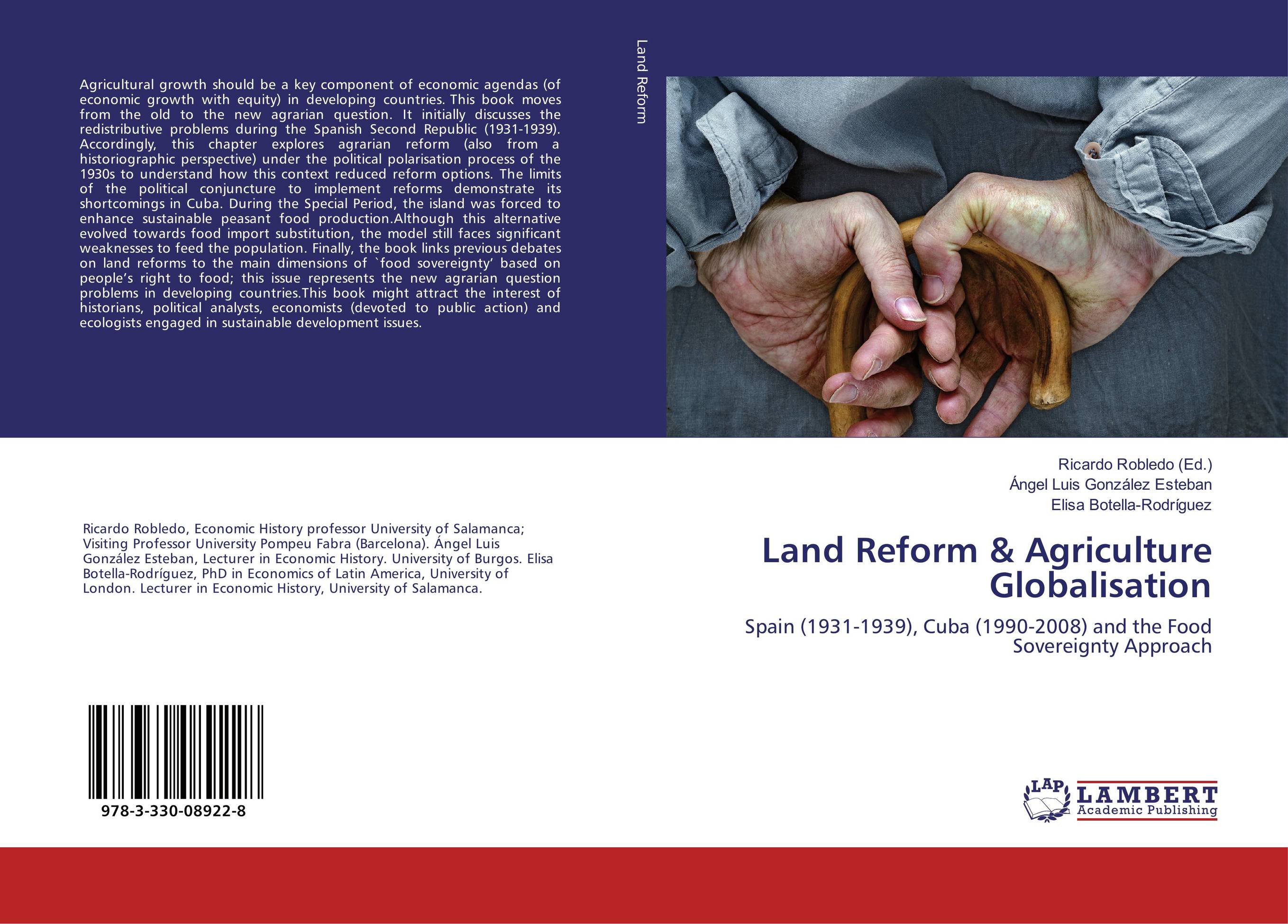| Поиск по каталогу |
|
(строгое соответствие)
|
- Профессиональная
- Научно-популярная
- Художественная
- Публицистика
- Детская
- Искусство
- Хобби, семья, дом
- Спорт
- Путеводители
- Блокноты, тетради, открытки
Land Reform & Agriculture Globalisation. Spain (1931-1939), Cuba (1990-2008) and the Food Sovereignty Approach

В наличии
| Местонахождение: Алматы | Состояние экземпляра: новый |

Бумажная
версия
версия
Автор: Ricardo Robledo,?ngel Luis Gonz?lez Esteban and Elisa Botella-Rodr?guez
ISBN: 9783330089228
Год издания: 2017
Формат книги: 60×90/16 (145×215 мм)
Количество страниц: 180
Издательство: LAP LAMBERT Academic Publishing
Цена: 28439 тг
Положить в корзину
| Способы доставки в город Алматы * комплектация (срок до отгрузки) не более 2 рабочих дней |
| Самовывоз из города Алматы (пункты самовывоза партнёра CDEK) |
| Курьерская доставка CDEK из города Москва |
| Доставка Почтой России из города Москва |
Аннотация: Agricultural growth should be a key component of economic agendas (of economic growth with equity) in developing countries. This book moves from the old to the new agrarian question. It initially discusses the redistributive problems during the Spanish Second Republic (1931-1939). Accordingly, this chapter explores agrarian reform (also from a historiographic perspective) under the political polarisation process of the 1930s to understand how this context reduced reform options. The limits of the political conjuncture to implement reforms demonstrate its shortcomings in Cuba. During the Special Period, the island was forced to enhance sustainable peasant food production.Although this alternative evolved towards food import substitution, the model still faces significant weaknesses to feed the population. Finally, the book links previous debates on land reforms to the main dimensions of `food sovereignty’ based on people’s right to food; this issue represents the new agrarian question problems in developing countries.This book might attract the interest of historians, political analysts, economists (devoted to public action) and ecologists engaged in sustainable development issues.
Ключевые слова: Cuba, Food Sovereignty, inequality, Land reform, sustainability, Spanish Second Republic, latifundia, small farming, inward - looking development policies, peasant farming, food crises, agrarian question



